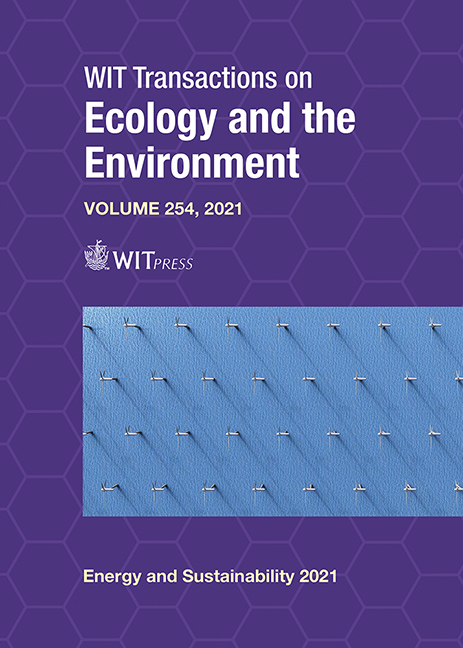NUMERICAL ANALYSIS ON HOT WATER STORAGE TANK INTEGRATED WITH PHASE CHANGE MATERIALS
Price
Free (open access)
Transaction
Volume
254
Pages
11
Page Range
125 - 135
Published
2021
Size
989 kb
Paper DOI
10.2495/ESUS210121
Copyright
Author(s)
ELISANGELA JESUS D’OLIVEIRA, SOL CAROLINA COSTA PEREIRA, ULUGBEK AZIMOV
Abstract
The combination of solar collectors with latent heat thermal energy storage system (LHTESS) has been employed toutilise solar energy more effectively, as this technology can provide a balancing function to match the variability in supply and demand, reducing the supply challenges for electricity. Computational fluid dynamic (CFD) has been proven to be an important mathematical tool for optimisation purposes; thus, it can be used to validate different design configurations. This study aims to conduct a numerical simulation using ANSYS/Fluent to investigate the thermal behaviour of a phase change material (PCM) storage system integrated with a thermal solar collector and compare it with experimental data from the literature review, with the objective of investigating the appropriate selection of the storage media material. The good correspondence between the numerical simulation results and the experimental results validates the numerical model proposed to be used with confidence to evaluate the performance of the solar collector in different configurations. The configurations evaluated include different types of phase change materials and NEPCM (paraffin wax, RT64HC, beeswax, RT64HC with 1 wt.% of Cu, beeswax with 0.15 wt.% of GNPs). A time step sensitivity analysis was conducted and the results obtained showed that the numerical model is not time dependent. From the results obtained beeswax with 0.15 wt.% had the highest peak of the average temperature of the water, however the integration of PCMs does not offer major benefits in terms of heat gains to compensate the highest cost related to these materials.
Keywords
solar water heaters, thermal energy storage, phase change material (PCM), latent heat storage, computational fluid dynamics (CFD), thermal performance





